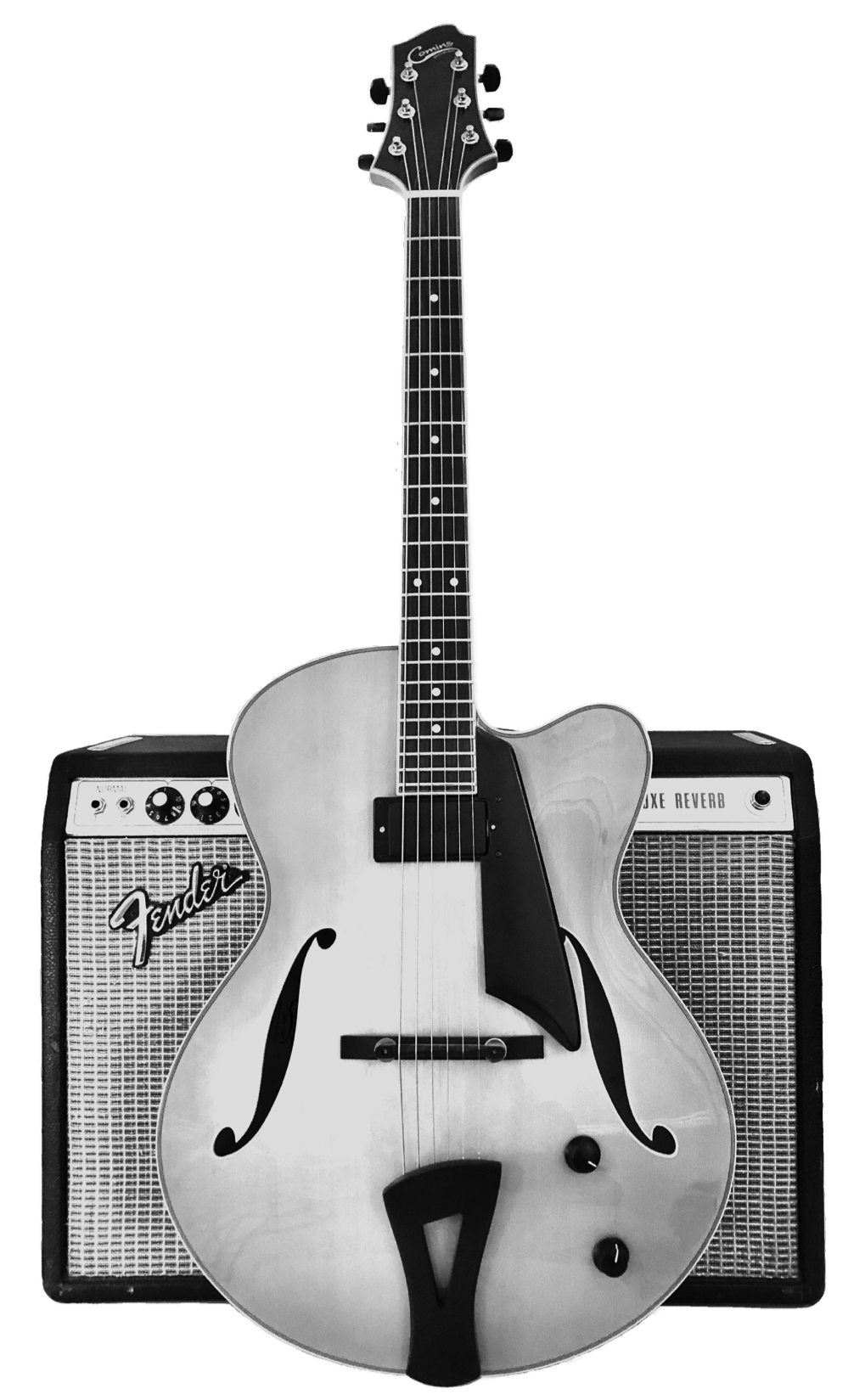Guitar Lessons
Colorado Springs Guitar Studio
Teaching Philosophy
In my teaching, I realize that no two guitar students are the same. People pick up the guitar and seek out lessons with many different motivations and goals in mind. Goals may range from gaining enough skill to casually play for fun all the way to someone wishing to develop the guitar skills to play professionally or attend college for music.
I modify my teaching greatly depending on the goals and interests of each student so that hopefully everyone has a positive exerience and makes steady progress toward whatever their goals may be.
With beginning students the primary goal is learning to operate and get around the instrument while having fun. With intermediate students and casual players we may delve deeper into specific styles and artists that the student likes while gaining more skill on the intstrument. With advanced students the topics generally include more advanced techniques, music theory and fretboard mastery, improvisation, and advanced styles such as jazz and fingerstyle guitar.
At any stage of development the lessons can be student led and we can learn specific songs or look at certain topics at the request of the student.
-Steve Langemo

Lessons By Level
Levels of playing ability and musicianship can be subjective but students often present themselves as being beginners or as being at various levels of playing ability. Here are some ideas of what we may cover at various stages.
Beginning Guitar
- Begin to gain technical skill, speed, and dexterity
- Learn single note melodies and riffs through tablature and possibly standard notation
- Build chord knowledge with open chords, power chords, and bar chords
- Play songs by artists and bands of the student’s choosing
Intermediate Guitar
- Build technique with excercies
- Build chord knowledge with 7’s and more advanced chords, CAGED system chords, triads, etc…
- Scales and improvisation
- Combine chord/scale knowledge with practical music theory
- Learn songs of the student’s choosing
Advanced Guitar
- Style, technique, or concept specific lessons based on the student’s interests
- Music theory and applying concepts to the guitar
- Advanced chords and chordal concepts
- Avanced scales and improvisation concepts
- Composition and songwriting
Style-Specific Lessons
Often as students gain skill on guitar they may want to take a deeper dive into specific musical styles that they love or may want to eventually play live or write and record. The instructor has professional experience working in a wide range of styles and can help students develop the unique skills and techniques that may be needed to excel at what they are interested in. Here is what may be covered in style-specific areas of study.
Rock/Pop Guitar
- Chord, scale, and theory concepts that may be specific to certain styles or artists
- Guitar techniques that may be specific to certain styles or artists
- Specific songs by artists or bands of the student’s choosing
- Classic styles such as Classic Rock, Country, Jam Band, Blues, etc…
- Modern styles such as Math Rock, Dent, Neo-Soul, etc…
Jazz Guitar
- Advanced jazz chords, chordal concepts, and chord melody
- Advanced scale, vocabulary, and improvisation concepts
- Repertoire, including jazz standards, fusion tunes, and tunes by contempoarary players
- Develop vocabulary through playing and analyzing recorded solos by classic or favorite players
Fingerstyle Guitar
- Fingerstyle technique and patterns
- Classical and pop fingerstyle repertoire
- Arranging pop and jazz tunes for fingerstyle guitar
Topic-Specific Lessons
Often more advanced guitarists contact the studio with very specific goals and topics they want to pursue. Common goals are often to gain a better command of music theory, to be able to improvise in any style, to be able to write and record their own music, and to gain a much better understanding of the guitar fretboard. Here are some specific areas of concept-specific areas of study.
Composition/Songwriting
- Practical music theory for songwriting and composition
- Analysis of popular songs and music of the student’s choice
- Writing model tunes based on theory concepts and analyzed tunes
- Finishing tunes and demo recording
Music Theory
- Advanced music theory concepts such as keys, modes, advanced chord progression construction, and jazz chord progression theory
- Practical application of music theory through fretboard knowledge of chords and scales
Improvisation
- Music theory focusing on chord/scale/key/mode relationships and chord progression/song analysis
- Scales and arpeggios and applications for improvisation
- Scale technique and concepts for working on building lines and better phrasing
